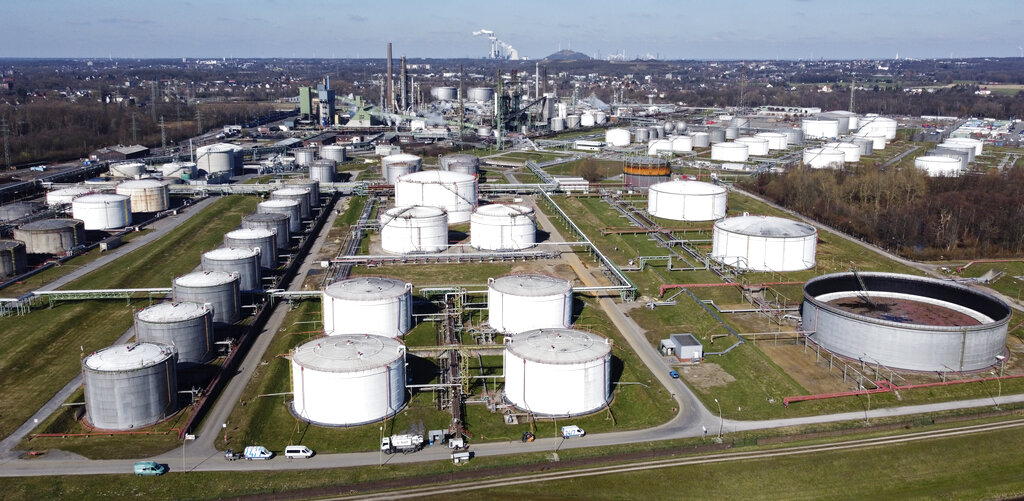The European Commission announced plans on Tuesday to reduce the bloc’s reliance on Russian energy, measures currently being analyzed in the context of embargoes declared by the United Kingdom and the United States on Russian oil.
The EU executive wants to stop buying fossil fuels from Russia by 2030 and has made a new commitment to reduce its Russian gas purchases by two-thirds before the end of the year.
This would be done by diversifying its suppliers, increasing the production of hydrogen from renewable sources and improving energy efficiency in households, the commission wrote in a statement.
The 27-member bloc has been sharply criticized for its dependence on Russian energy supplies, especially in the wake of Moscow’s invasion of Ukraine. In 2021, the EU imported approximately 45 percent of its gas needs from Russia, according to the International Energy Agency, while in 2020, oil imports from Russia accounted for 25 percent of the bloc’s oil imports.
“We could phase out at least 155 billion cubic meters of gas, which is equivalent to the volume imported from Russia in 2021,” the document prepared by the European Commission read. “Almost two-thirds of this reduction could be achieved in a year, ending the EU’s excessive dependence on a only supplier,” it added.
As part of the updated plan, the European Commission wants EU nations to fill their gas reserves to at least 90 percent by Oct. 1 each year. In addition, the institution added that state aid rules could be relaxed to support companies facing higher wholesale energy prices.
The European Union’s heads of state are expected to discuss the proposal at the upcoming March 10-11 summit in Versailles, France, although a number of countries have already expressed reservations.
Hungarian Prime Minister Viktor Orbán announced on Tuesday that due to his country’s high dependence on Russian gas and oil, it cannot afford any sanctions in that field. Meanwhile, Germany’s largest confederation of businesses, the BDI, also lobbied against sanctions this week, warning that the move would have a “severe impact” on the German economy.






